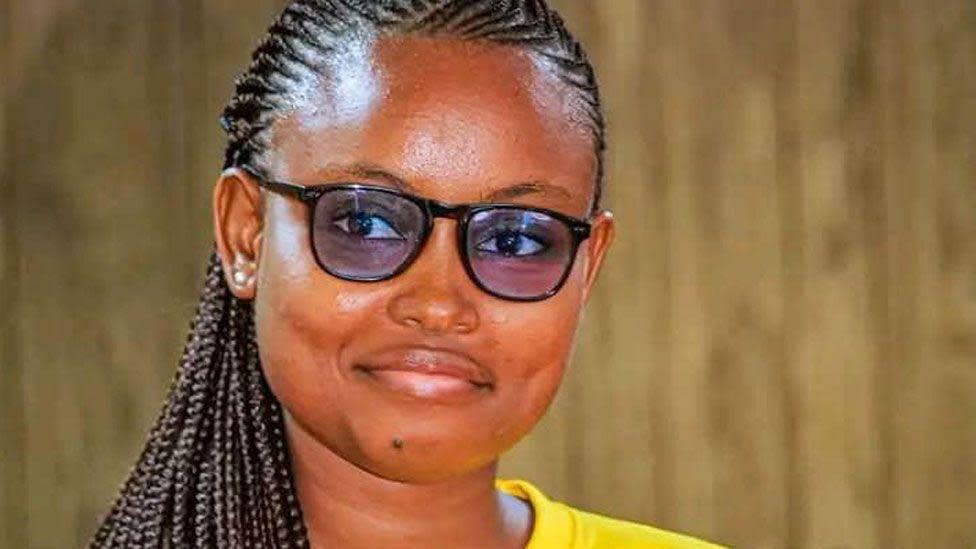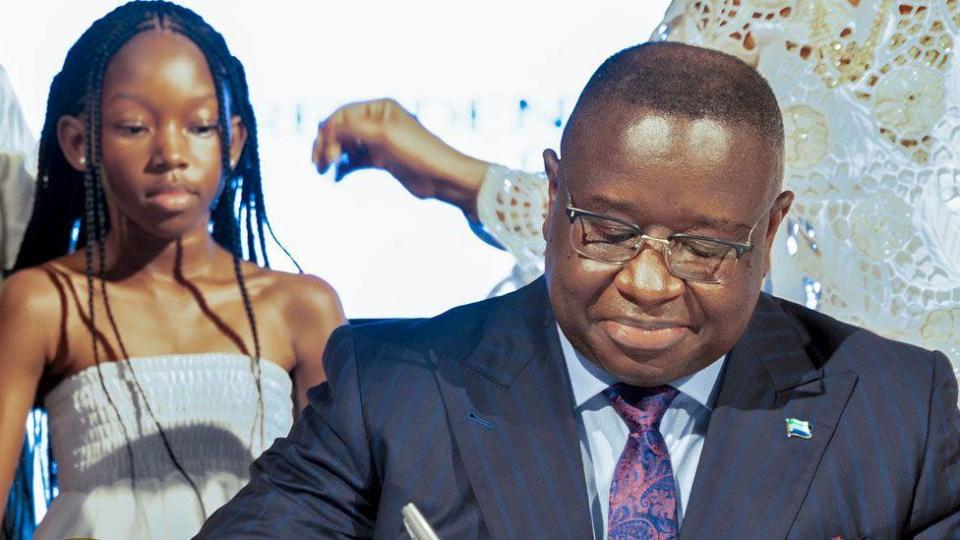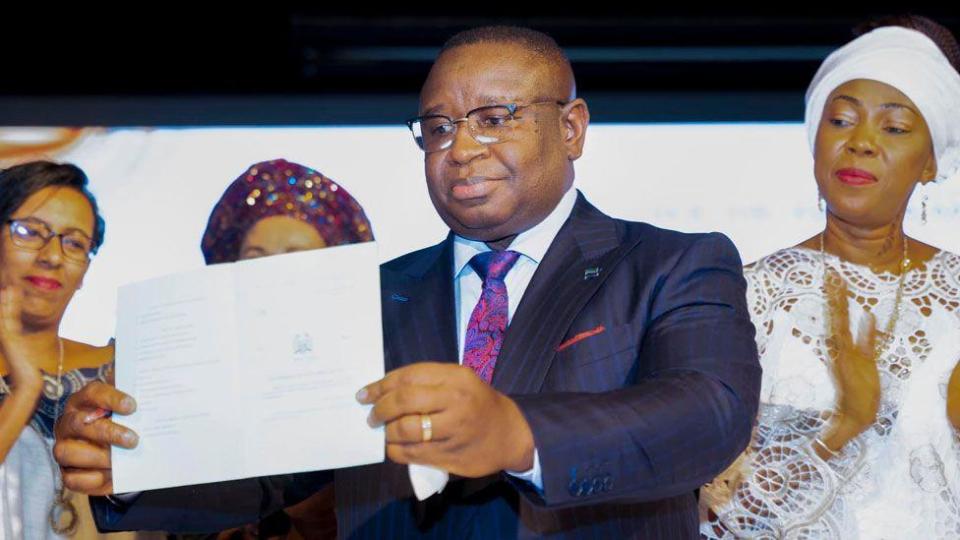Child marriage ban welcomed in Sierra Leone

- Oops!Something went wrong.Please try again later.
- Oops!Something went wrong.Please try again later.
Sierra Leone has brought in a new law banning child marriage with much fanfare at a ceremony organised by First Lady Fatima Bio in the capital, Freetown.
Invited guests, including first ladies from Cape Verde and Namibia, watched as her husband President Julius Maada Bio signed the Prohibition of Child Marriage Act into law.
Anybody now involved in the marriage of a girl aged under the age of 18 will be jailed for at least 15 years or fined around $ 4,000 (£3,200), or both.
University student Khadijatu Barrie, whose sister was married off at 14, told the BBC she welcomed the ban but wished it had come in to save her younger sibling.
“I really wish it had happened earlier. I could have at least saved my sister and my friends and other neighbours,” the 26-year-old gender studies undergraduate said.
Sierra Leone is a patriarchal society and it is common for a father to give his daughter’s hand in marriage forcibly.
Ms Barrie faced this prospect aged 10. She resisted it and fled the family home after her father disowned her.
She was lucky enough to find teachers who paid for her school fees and a sympathetic worker from the UN children's agency who helped her out with accommodation.
But she says it is difficult for those who live in rural areas to buck tradition and every community will need to be informed about the new law for it to be effective.
“If everyone understands what's there waiting for you in case you do it I'm sure this country will be a better one,” Ms Barrie said.
The ministry of health estimates that a third of girls are married off before they turn 18, accounting for the country’s high number of maternal deaths - among the highest in the world.
Those who face punishment under the new rules include the groom, the parents or guardians of the child bride, and even those who attend the wedding.
Mrs Bio, who has been at the forefront in campaigning against sexual abuse since her husband became president six years ago, wanted the signing of the bill to be a big occasion.
Since MPs passed the legislation a few weeks ago, it has not received much coverage locally.

At the ceremony, President Bio said that his “motivation and commitment to empowering women and girls is firmly rooted in my personal life journey”.
His eight-year-old daughter was amongst those who watched him sign the bill.
The 60-year-old president explained how he had lost his father at an early age and had been brought up by his mother and later his elder sister who “supported and encouraged me to pursue my dreams to the best of my ability”.
He acknowledged his wife’s commitment to championing women’s rights: “Together, we want to build an empowered Sierra Leone where women are given an even platform to reach their full potential. I have always believed that the future of Sierra Leone is female.”
Rights activists reacted favourably to the lawm, calling it a watershed moment.
On their X page, the US Bureau of African Affairs welcomed the passage of the bill saying the “significant milestone not only protects girls but promotes robust human rights protections”.

You may also be interested in:

Go to BBCAfrica.com for more news from the African continent.
Follow us on Twitter @BBCAfrica, on Facebook at BBC Africa or on Instagram at bbcafrica

